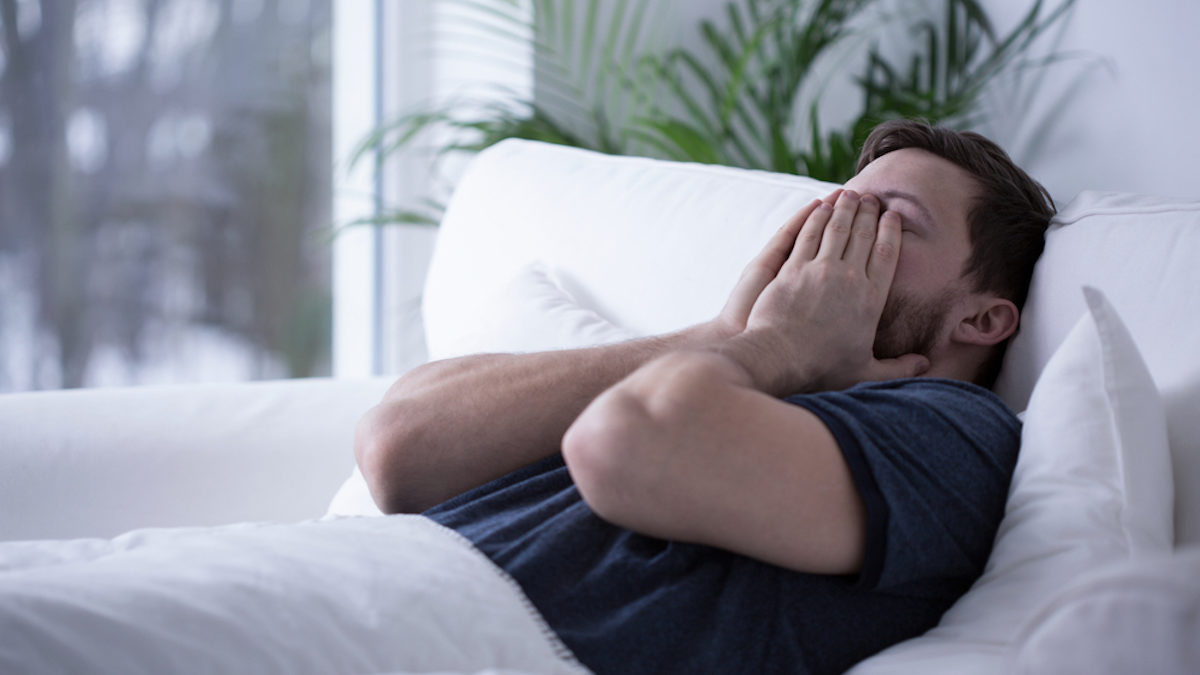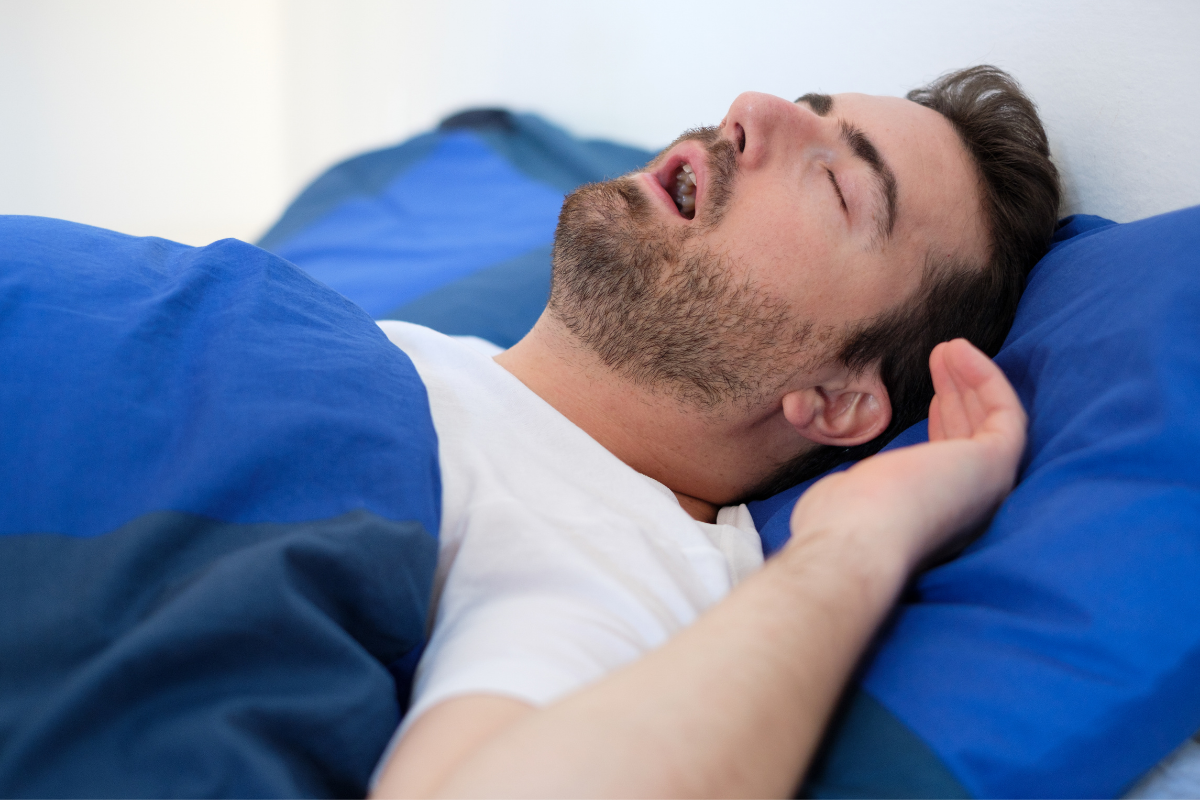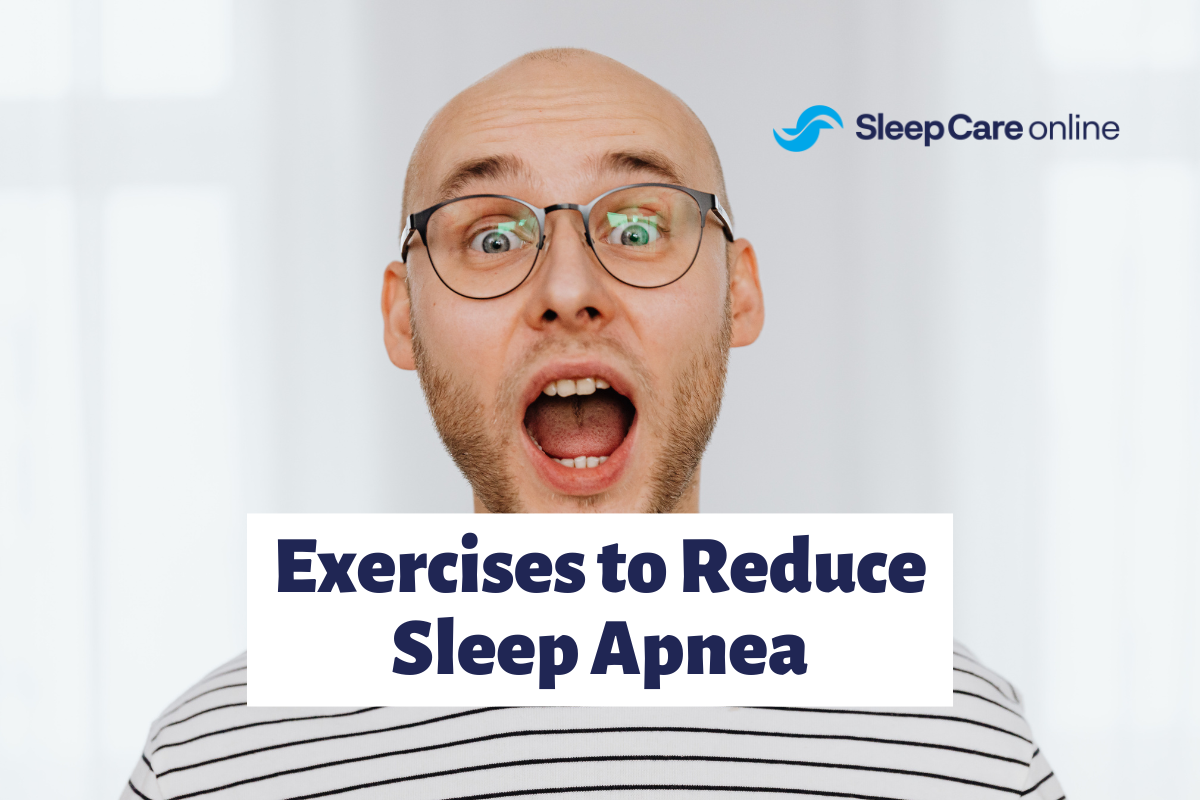Do you have frequent nightmares? They may be due to your sleep apnea. The blood oxygen drop that occurs during an “apnea” causes the brain to go into high alert and trigger responses in your sleep that may be unsettling. Often nightmares during sleep apnea are very specific, dreams of drowning or suffocating as the brain reacts psychologically to the physical event of sleep apnea.
What Are Nightmares?
Nightmares are dreams that are intensely vivid, stressful and sometimes scary. Nightmares occur deep in the sleep cycle when dreaming happens. They can often leave individuals waking startled and upset. Nightmares are often memorable and seem real. Frequent nightmares, especially recurring themes in nightmares may indicate nightmare disorder which may be the result of stress or trauma experienced in our waking life. Knowing the differences between bad dreams, nightmares, and nightmare disorder is a first step to addressing the causes of nightmares.
What Are the Causes of Nightmares In Adults?
Nightmares in adults can be caused many aspects of our waking life including:
- A traumatic event
- Sleep deprivation
- Medications
- Substance use or abuse
- Exposure to frightening or intense content such as a book or movie
Nightmares tend to be expressions of negative emotions, fear and anxiety. They may begin in children between 3 and 6 years old and tend to decrease after the age of 10. During the teen and young adult years, girls appear to have nightmares more often than boys do. Some people have them as adults or throughout their lives.
Sleep Apnea Nightmares Are a Problem – Why?
Some studies have shown a relationship between nightmares and sleep apnea. Because sleep apnea occurs when the airway closes, many people may experience nightmares of suffocation or drowning.
Sleep apnea can contribute to a number of health problems such as he
Sleep Apnea and Dreams
Dreaming occurs at the deepest level of sleep or REM sleep. REM stands for rapid eye movement, referring to the back and forth movement your eyes make behind your eyelids when dreaming. Most undiagnosed people with sleep apnea do not remember their dreams. That’s because they may not experience REM sleep due to their frequent wake-ups and gasps for air. Patients who are treating their sleep apnea only experience dreaming with the regular use of CPAP machines and masks, which allows them to reach that deeper realm of rest. Thus, those with sleep apnea and not using CPAP therapy may have fewer dreams.
Causes Of Nightmares and Night Terrors
While nightmares can be the result of aspects of our waking life, night terrors can be the result of fever, emotional distress or sleep deprivation. Night terrors can occur with adults but more often are experienced by children. Night terror symptoms include:
- Sudden awakening from sleep
- Persistent fear or terror that occurs at night
- Screaming
- Sweating
- Confusion
- Rapid heart rate
- No recall of bad dreams or nightmares
- Unable to fully wake up
- Unable to be comforted or experience the night terror while appearing to be awake
The difference between nightmares and night terrors usually involves the ability to remember what has happened while asleep. Nightmares tend to be vivid enough to be remembered while night terrors are often so traumatic that a child especially will not recall the details of the dream.
Effect of Sleep Apnea on Dreams
Because the brain can never fully achieve REM sleep because of disruptive sleep apnea episodes, dreaming is less frequent or occurs in shorter periods. Sleep apnea may also affect dreaming in terms of the content, which can be disturbing and transform into nightmares due to erratic sleep patterns caused by sleep apnea.
Why Can’t I Remember Dreams?
If you can’t remember your dreams, it’s possible that sleep apnea is the reason. A study recently found that only 43.2 people with sleep apnea remembered their dreams compared to 71.4 of those without sleep apnea. The disruptive patterns of sleep apnea prevent dreams from being logged into memory. This means that many sleep apnea patients may feel like they experienced a dream upon waking, but do not recall the content.
How to Control Nightmares and Dreams with Sleep Apnea?
The best approach for managing your nightmares and dreams with sleep apnea is to stay CPAP compliant. This means that you should wear your CPAP mask and use your CPAP machine every night. CPAP therapy helps you reach the REM sleep level that allows for peaceful and memorable dreams. As your brain experiences peaceful sleep, it can help prevent disturbing nightmares triggered by restless sleep.
How Can I Improve My Dreams?
Good dreams come with good sleep. Follow these tips to improve sleep and dreaming.
- Be sure to get enough sleep, at least 7 hours a night
- Exercise during the day to reduce excess energy and prepare your body for sleep
- Avoid stimulants like caffeine and alcohol before bedtime
- Avoid blue light sources like TV and your phone and computer before bedtime
Does Having Regular Nightmares Mean I Might Have Sleep Apnea?
Frequent nightmares don’t always mean you have sleep apnea. They could also be from other factors. These include stress during the day, other sleep disorders, and even overeating before bedtime. They can all trigger disturbing dreams. If you can rule out other causes of your nightmares, then it is best to get tested for sleep apnea.
Treatments for Nightmares
An occasional nightmare is nothing to be worried about. But frequent nightmares should be addressed. While there is no precise treatment for them, there are approaches that someone experiencing frequent nightmares can take. A person experiencing recurring nightmares should:
- Try to remember and write down details of the nightmare
- See if any connection can be made with the details of the dream and experiences in waking life
- Consult a therapist for help understand and eradicate the nightmares through psychotherapy
How to Prevent Nightmares with CPAP Therapy
IF you are currently using CPAP therapy to manage sleep apnea and are experiencing nightmares, there are a few steps you can take.
Consult with your doctor about the nightmares and the possibility of adjusting your CPAP machine settings. Often nightmares during CPAP therapy are the result of apneas occurring which can affect your breathing and create an alarming mental state and a drop in blood oxygen.
Make sure your CPAP equipment is working properly to ensure CPAP compliance. Ill-fitting masks and leaks can lead to apneas and possibly nightmares during therapy.
How Do I Test for Sleep Apnea?
Sleep apnea can also be diagnosed using polysomnography, an in-lab sleep study that requires an overnight stay. In-lab studies can evaluate breathing patterns, brain waves, and oxygen saturation levels along with other indicators of sleep apnea during the overnight stay.
An at-home sleep study can be conducted more conveniently as it does not require an overnight stay. Furthermore, it can be conducted in the comfort of your own bed.
Here is how an at-home test works with Sleep Care Online:
- With the Complete Care Package, schedule a 10-minute telehealth visit with a healthcare provider to discuss your symptoms, upcoming sleep study, test results, and treatment options.
- A multi-night, disposable home sleep apnea test is mailed to your home to be completed at your convenience.
- A physician analyzes the sleep data and provides a prescription if needed.
- Schedule an optional follow-up appointment (additional fee applies).
- We connect you to sleep experts who can offer customized sleep therapy options, assistance in equipment purchase, and initial set-up.




